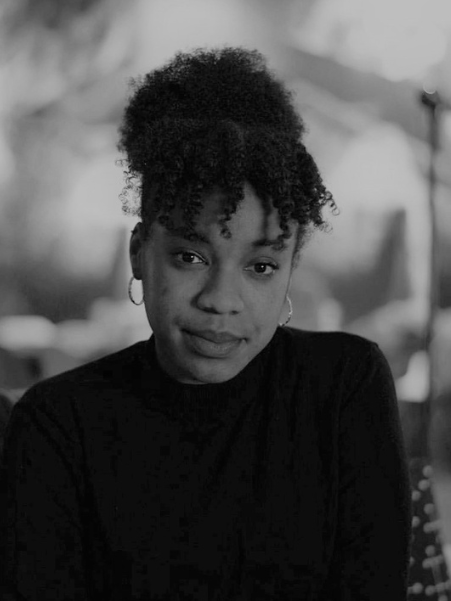-
SCHOLAR SPOTLIGHT - OLIVER TROWELL (MSC STUDENT IN INTERNATIONAL DEVELOPMENT, BIRKBECK, 2020 TO 2022)
March 2023 Newsletter
March 30, 2023

My research focussed on the role of the Chinese Government in the reconstruction of post-conflict Syria and the rehabilitation of its economy, as well as its implications. Specifically, I sought to understand why China opted to assist Syria, a country which has experienced widespread destruction to its critical infrastructure and industries after more than a decade of war and remains constrained by economic sanctions.
This research topic was chosen, in part, due to two of my key interests: counter-terrorism and counter-extremism, and soft power competition in international development. Using mostly qualitive methods, but with some secondary data analysis of Chinese investment and aid in Syria over the past two decades, I presented three key areas of interest that drive China's motives in Syria.First, it provides an arena through which it can confront the US and its allies in the Global North without risk of direct conflict. Second, Syria provides China with an opportunity to further secure Beijing's long-term energy interests and diversify its existing available supplies. Third, China recognises that the stabilisation of Syria will prevent the further outbreak of Salafi-Jihadist groups that threaten its domestic security and the successful rollout of the Belt and Road Initiative throughout Central and Western Asia.
-
SCHOLAR SPOTLIGHT - SHEREEN HUNTE (MA STUDENT IN CULTURE, DIASPORA, ETHNICITY, BIRKBECK, 2020 TO 2022)
March 2023 Newsletter
March 30, 2023

My dissertation explored the potential for allyship between the Black British community and
British Jewry in London. Within today’s society in London, the Black community and Jewish
community are often perceived in extremes. This is apparent through most sections of society, geographically, politically, racially, economically, and beyond. Though it is integral to acknowledge the Black British community’s and British Jewry’s distinctly unique histories, I argued the utmost value in drawing connection between these communities as a powerful and transformative force of solidarity.
This is particularly relevant considering each community’ experience of marginalisation, racialisation and movement in varying moments throughout British history. As Solomos (2003) rightly states, ‘only by analysing the way in which historical experience overlaps the present is it possible to understand the continuities and discontinuities between current racial ideologies and previous forms.’
In addition, only by thoroughly analysing these overlaps are we able to imagine the true potential of authentic solidarity between communities. Through such analysis, I examined the points of solidarity that each community can lean on to strengthen rapport, support community healing and campaign for better rights regarding anti-black racism and antisemitism.
To better understand the potential for allyship between the Black British and British Jewish communities in London, I chose interviews for my methodological approach. I interviewed a total of ten interviewees; four people who identified as Black, four people who identified as Jewish, and two people who identified as Black and Jewish.
All interviewees held a key role in community organising for their respective community. The interviews exposed the nuance and complexities of solidarity, whilst identifying key equitable possibilities for supportive experience exchange, including ethnoreligious solidarity, solidarity as a healing practice; solidarity in cultural experience and solidarity in essence, leaning on the lived-experience of Black British Jews.
-
NEW SCHOLAR SPOTLIGHT - TEMI MWALE (PHD STUDENT IN LAW, BIRKBECK, 2023 TO 2026)
March 2023 Newsletter
March 30, 2023

Temi is an advocate for marginalised Black communities. She focuses on fighting against institutional racism and is passionate about building a world where we use a radically different approach to resolving conflict within society. Temi has discussed the importance of grassroots organising at a roundtable with the Obama Foundation. Temi has appeared in front of the Home Affairs Select Committee to give expert evidence about institutional racism in the police. She was part of the ministerial roundtable that examined serious youth violence.
She has worked with Mexican institutions to consult on their "Building Movements, Tackling Violence" strategy. Temi was one of sixty change makers from across the world selected to participate in the 10th UNESCO Youth Forum. She was asked to consider how UNESCO can support and amplify the voices of young people who are actively engaged in peace-building across the world and presented these recommendations at the 39th UNESCO General Conference to representatives from across the world.
Temi has been a commentator on numerous outlets, including The Today Programme, Sunday Politics, Channel 4 News, Sky News, The Guardian, The Huffington Post, as well as being featured in Vogue and Elle. She has spoken about racial equity at various universities and companies.
Temi’s work at The 4Front Project is changing the way that people understand how to support young people who have been affected by violence.
Temi grew up on Grahame Park Estate in North West London. It was her early experiences of injustice that formed her primary motivation to create change. She studied Law at the London School of Economics and Political Science where she was a High Spen Scholar. During her studies, she sought to bridge the gap between the academic theory and grassroots movements. -
ALUMNI SPOTLIGHT - DOMINIC REILLY (PHD IN PSYCHOLOGY, BIRKBECK, 2016 TO 2019)
October 2022 Newsletter - click on the arrow for more
October 18, 2022
“My name is Dominic Reilly. I was a Bonnart Trust PhD scholar between 2016 and 2019.”
What was your research about, at the time of your scholarship with the Bonnart Trust?
“My research proposal was about so called racial ‘preferences’ in sex and romantic relationships, something that I quickly came to reformulate as the racialisation of desire and sexuality. My starting point was the hook-up and dating app Grindr - which is used by men who have sex with men - and launched in 2009 and quickly became a sight of which racialised sexualities were asserted and contested and in various ways, produced and re-produced. I was interested in the ways in which race gets into sexuality, and how race and sexuality sustain each other. I’m particularly interested in the lived experience of these things. To that end, I proposed to interview people who self-identified as having a racialised sexuality, as well as analysing Grindr profiles and reading lots of theory about race, sexuality and their intersections.”
How has the Bonnart Trust impacted on your life/studies?
“The Bonnart Trust has impacted my life in numerous ways. Firstly, it gave me the time, space and freedom to be able to immerse myself fully in my research for three years, without the financial pressures of having to work full time. It also provided me with a community - both intellectual and pastoral - which I think is something that’s particularly important for postgraduate students. Doing a PhD in particular can get quite lonely, it can be quite a slog at times. It’s also provided a fantastic alumni network, and there are events every year that you can attend, and meet present and former scholars, and find out what everybody is up to, and how they’re applying their research. Lastly, it provided me with a platform and a financial impetus to write a report about my research, which was a great opportunity to think about what I could extract from my research, for different audiences.”
-
SPOTLIGHT - DR BRENDAN MCGEEVER (SENIOR LECTURER, DEPARTMENT OF PSYCHOSOCIAL STUDIES, BIRKBECK)
October 2022 Newsletter - Click on the arrow for more
October 18, 2022
“My name is Brendan McGeever. I’m a Senior Lecturer in Sociology, here at Birkbeck. I teach in the department of Psychosocial studies, and I also do work in the Birkbeck Institute for the study of antisemitism.”
How important is it that students think about the applications of their research?
“I think it’s very important actually. We live in a world that’s in crisis. It’s a crisis of climate, health, of economy, and of politics. If we look around us, I think we can all agree that this is a world that’s in need of change. And rigorous, serious, academic research can be part of that change, and in certain circumstances can be harnessed in a transformative and progressive direction. I think it’s very important that doctoral students and Masters students think about the way in which their research connects with the real world, and can possibly work towards the changing of that world as well.”
Is it common practice for funding bodies to encourage students to think about applying their research, or is Bonnart doing something unusual?
“I think it’s both familiar and strange. I’ll start with the first one. In academia, time and again these days, we’re told about the importance of impact, as academics, and to think about the way in which our research can have an impact in the world. So it’s no surprise to me that students now are being encouraged to think that way too. But it’s also strange and unfamiliar as well what the Bonnart Trust is doing. This focus that the Trust has on equality, on inclusivity and perhaps even antiracism strikes me not only as vital and important but also unique and very special, and something we need to protect in these dangerous and uncertain times.“
The trust can be reached by email on kerryann@bonnart.org
Please note that The Bonnart Trust and trustees do not consider direct applications.
The Trust is a registered UK Charity and is governed by five volunteer Trustees and an administrator.
Copyright The Bonnart Trust (Frederick Bonnart-Braunthal Trust). UK Registered Charity Number 1094967